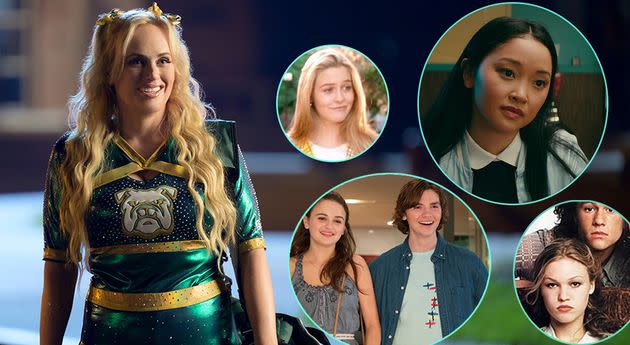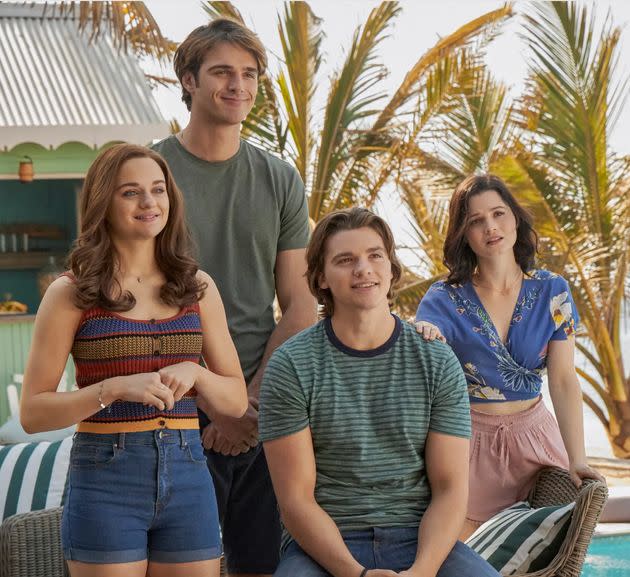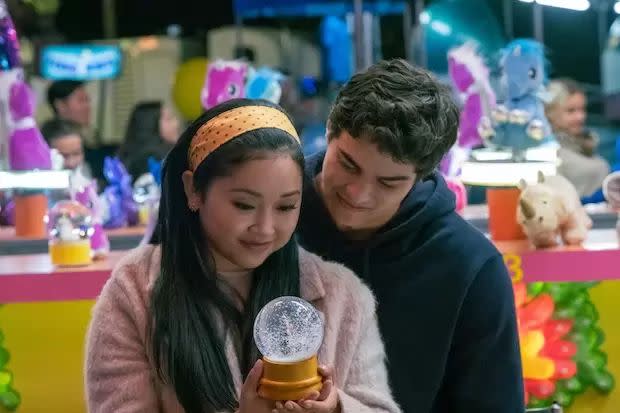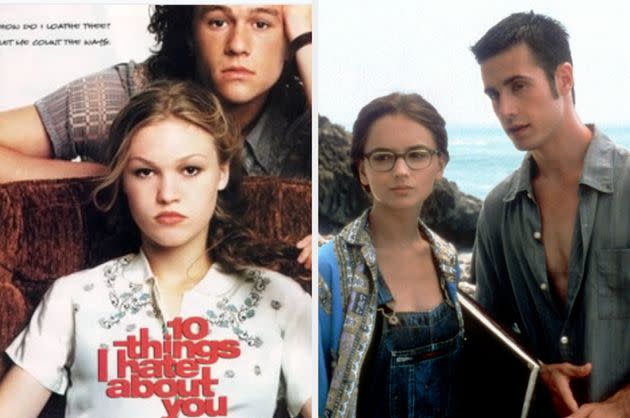Why Are High School Movies So Fond Of Dead Mums?

Senior Year is the latest to fall trap to the dead mum trope (Photo: Netflix/HuffPost UK)
In film and TV, there is no dearth of dead women, usually for the character development of the male protagonist when it comes to crime or action genres.
It’s a trope that endures when it comes to parental roles too, with the ‘dead mum’ conspicuous in her absence. And nothing has a chokehold on the missing mum than the high school teen drama.
We’ve seen it in the 90s – Clueless, She’s All That, 10 Things I Hate About You – to the noughties – A Walk to Remember, Save the Last Dance, Wild Child, Coyote Ugly – and beyond, with The Descendants, The Pretty One, Geek Charming, and more.
It still persists in the modern day high school film, think of the To All the Boys trilogy, The Kissing Booth, and even Netflix’s latest teen flick, Senior Year (and for some reason, the greatest honour to the departed in many of these films is for their daughter to become prom queen?).
This convenient story of the mum who died in childhood acts as a mere plot device to add emotional depth to the (oft female) main character, without needing much exposition.

The Kissing Booth falls into the same trap (Photo: Netflix)
While teen films have a bit of an obsession with the absent/dead parent(s) in general – A Cinderella Story, The Edge of Seventeen, many Nicholas Sparks movies – the dead mum reins champion over its counterpart, the dead dad.
Though the dad figure can can also be missing, the ambiguously absent dad is often explained away by lack of interest in their daughter’s life, deadbeat tendencies, overworking, or through being unknown to their offspring.
A woman is either absent by wilful neglect (to which the story is pegged) or death. There is no nuance or in between.
Of course, dead parents aren’t just used as a plot device in teen movies. This is, after all, the leading origin story for much of the superhero universe. But the deceased matriarch trope seems to be especially revered in films with a young female character who usually takes on mothering responsibilities as well as spousal, taking care of their widower dad’s needs.

Another one (Photo: Netflix)

90s films also love this trope (Photo: Disney/Netflix)
You might think it could just be reflective of the household set-up in the US, but actually, according to the US Census Bureau, 19.5 million children, more than one in four, live without a father in the home – so why do films insist on killing the mother? After all, we don’t often see absent and dead dads in coming-of-age male-centred high school films.
The motherless teen narrative actually serves a purpose, one that can be considered anti-feminist, say Dr Melanie Kennedy, lecturer in media and communication from the University of Leicester, as it’s once again about surreptitiously strengthening our perceptions of male characters; in this instance, the father.
She tells HuffPost: “Typically those fathers are either stiflingly over-protective of their young daughters, or immature, irresponsible and who need to grow up themselves; or sometimes they are concerned for their daughter’s wild-child ways and work to ‘tame’ her. In the end the father is valorised for his role in the lead girl’s onscreen journey.”
Though these male characters might get less screen time, ultimately their coverage is positive.
“These contemporary representations of single widowed fathers of daughters very much speak to this notion of the ‘new man’ who is capable of nurturing and care-giving, offering a more sensitive form of masculinity, following depictions of tough, muscular action heroes of earlier decades,” Dr Kennedy adds.
Let’s not forget that these depictions are portrayed during a girl’s formative years, a time where they may seek or receive guidance about what it is to be a woman, which in real life usually materialises from the women in our lives.
But films show otherwise. “This trope can work as a subtly anti-feminist ploy to remove mothers from narratives of parent-child representations altogether, in order to bring to the fore the father as the ideal guide and care-giver in young girls’ lives onscreen,” says Dr Kennedy. “This is a really insidious move to remove adult women from the picture altogether and make them redundant.”
Not only do these plot lines come across as disingenuous to those who did lose their mums in childhood – and indeed many without a parent might appreciate films that represent their experiences – it also erases opportunities for women to play older parts.
Professor Jo Littler, from the gender and sexualities research centre at City University London, tells HuffPost: “A missing parent or parents has been a longstanding trope of children’s books and films, both because it provides a dramatic space and push for the child to grow up, and because it’s a popular fantasy to escape parental control.
“However an increase in absent mothers – rather than both parents – in film is troubling. It does reflect how contemporary culture can be uncomfortable with middle-aged women and indeed all grown up women to some extent.”
It seems particularly maddening that mothers are erased in the coming-of-age genre, when many of the transitional moments we experience in real life are grounded by the connection we have with our mothers – especially for girls and young women.
And not only that, it’s just lazy writing.
Thankfully, we’re seeing better representations of motherhood – including the flawed, the flimsy, the chaotic, in film and TV – but it shouldn’t mean it’s available to view only in genres catered to mums and older women.
Girls, young women, and men, as viewers or as fictional characters should be privy to a multifaceted, autonomous mother figure. So, enough of the dead mum, and more of the powerhouse women we see every day in real life, please.
This article originally appeared on HuffPost UK and has been updated.

